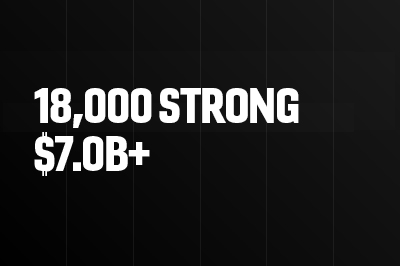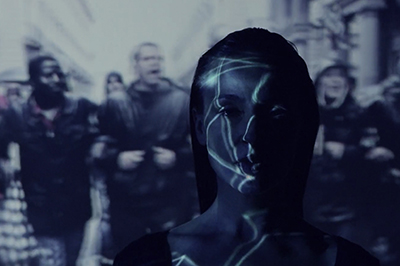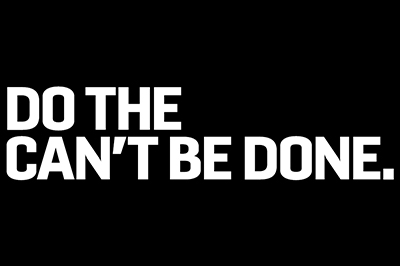Veterans are an essential part of Peraton’s workforce, with over 600 veterans and military spouses currently employed. But more than just serving as an employer of veterans, Peraton strives to be a supporter of the veteran and military community. To be a good supporter, it is important to understand the opportunities and challenges facing this complex, distributed population.
Just before Veterans Day 2020, one of Peraton’s U.S. Navy veterans, Director of Strategic Communications Brian Wagner, sat down with U.S. Army veteran JJ Pinter, Deputy Director of national non-profit Team Red, White & Blue (RWB), for an honest and inspiring conversation about the future of the veteran community, the current shortfalls for helping veterans, the rewards and challenges in addressing those shortfalls through Team RWB’s work, and how the military has changed in the last twenty years.
Audio Interview with Team RWB
“Weaving social events and community service into a focus on physical health, that’s the magic formula that works for our members,” said Pinter. Founded in 2010, Team RWB is one of the U.S.’s largest post-9/11 veteran organizations, with over 250,000 members—including veterans, active duty service members, spouses and civilian supporters—spread across nearly 200 volunteer-led chapters. The organization is focused on improving veterans’ transition out of the military and giving them a solid foundation for facing the myriad challenges that can come with being a veteran.
“Thinking about the wheel of horrors in the veterans’ space – suicide, homelessness, unemployment, substance abuse – those are all terrible problems,” said Pinter. That is why building community and giving Team RWB members a sense of belonging and purpose is so crucial, even if non-events are hard to measure as successful moments. “The blocking and tackling is not super exciting, but that preventative work is the most important.”
A Changing Transition Support
Pinter joined the Army in 2001 after graduating from West Point and served as a field artillery officer before transitioning out in 2006. “It was an exciting, terrifying, tiresome time to be in the Army,” Pinter recalled. He noticed that many of his friends and colleagues struggled to find their footing after leaving the Army even though they had access to a strong foundation in terms of employment opportunities and personal relationships. He thought to himself, “what happens to the soldiers I served with who don’t have all this?”
Pinter started as a Team RWB volunteer because founder Mike Erwin was a classmate from West Point. Eventually, he became the organization’s second paid employee and now plays a key role in the development, growth, and operations of the nonprofit. “At the start of Team RWB, there were constantly deployed troops and constantly injured and ill troops coming back,” said Pinter. “Our mission was mainly about receiving these people.”
As the number of troops deployed to Iraq and Afghanistan decreased, the transitioning veteran population started to look different. Team RWB shifted to accommodate this different type of member and changed focus to fill the gaps in transition support.
Team RWB’s Health Focus
Pinter observed that “the fissures in people’s health have now turned into cracks and quagmires because of COVID-19,” making the efforts of Team RWB even more necessary. According to Pinter, the average transitioning veteran gains up to 40 pounds, struggles with loneliness, and lacks a sense of purpose. These problems can then bleed into relationships, daily work, career aspirations, and quality of life.
To combat this, Team RWB has always had three types of activities: volunteering, exercise-based recreation, and social meet-ups. Now the organization is pivoting to focus heavily on exercise, since good physical health also improves mental health, which then helps deter common pitfalls in the veteran community.
Last year, Team RWB hosted 40,000 events around the country. Since March 2020, engagement numbers have been higher than ever as members seek escapes from the pandemic, social isolation, and economic uncertainty.
Since the organization has always tried to be welcoming, virtual content and activities have long been available for members who don’t live near a Team RWB chapter. Having to cancel every in-person event gave Team RWB the opportunity to hone its virtual content and online community, particularly through the RWB app. Pinter still hopes to host more in-person events soon but said “there will always be a strong undercurrent of virtual content that anyone can use.”
The Benefits of Employing Veterans
Veterans make great employees. Peraton, among other companies, has created a culture that bridges the civil and military divide. To Pinter, it’s a win-win. “The businesses that put resources into this, they do it initially out of a sense of service or patriotism, but I hope it stays because they see a return on investment on the initiative.” Even if a talent acquisition initiative or culture change happens out of a “moral obligation to help veterans transition, the economic argument is actually much more compelling,” he said.
Veterans’ education and skillsets, as well as their tested leadership capabilities and ability to handle stressful, unplanned scenarios, are compelling reasons to hire veterans and welcome them into your community. When provided with effective transition support, veterans will usually continue to strive to succeed and make a positive impact.
Peraton was named a Best for Vets employer by Military Times this year, but the work must continue. As Pinter mused, “How much of the transition responsibility is on the military to prepare and the veteran to adapt, and how much is the responsibility of a potential employer to step outside the box of how they treat the civilian colleagues and understand the differences? Where do we go to meet in the middle?”
As veterans’ needs change, Peraton will adapt to meet those needs.
Reflecting on Veterans Day
Veterans Day is a time to celebrate everyone who has ever served in the military. Veterans Day is also about acknowledging the positive influence of the military on veterans’ lives and the lives of others.
Pinter wants to “inspire veterans to do the best they can and show the next generation that [military service] is a great career or education option.” The future of the military depends on children today seeing the benefits of serving or, otherwise, supporting the U.S. military. Pinter added, “We’ve been an all-volunteer force for a long time and the way in which we as a country talk about veterans and recognize veterans are what will allow Team RWB to keep doing our work.”
Peraton is proud to partner with Team RWB and support their efforts to engage veterans along with their families, friends, and any other military supporters.





